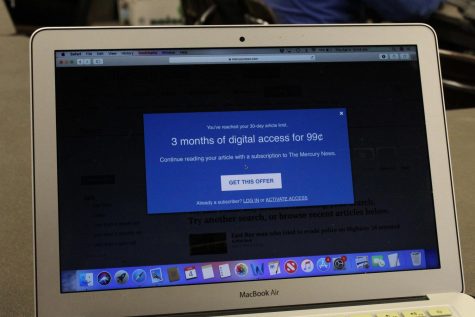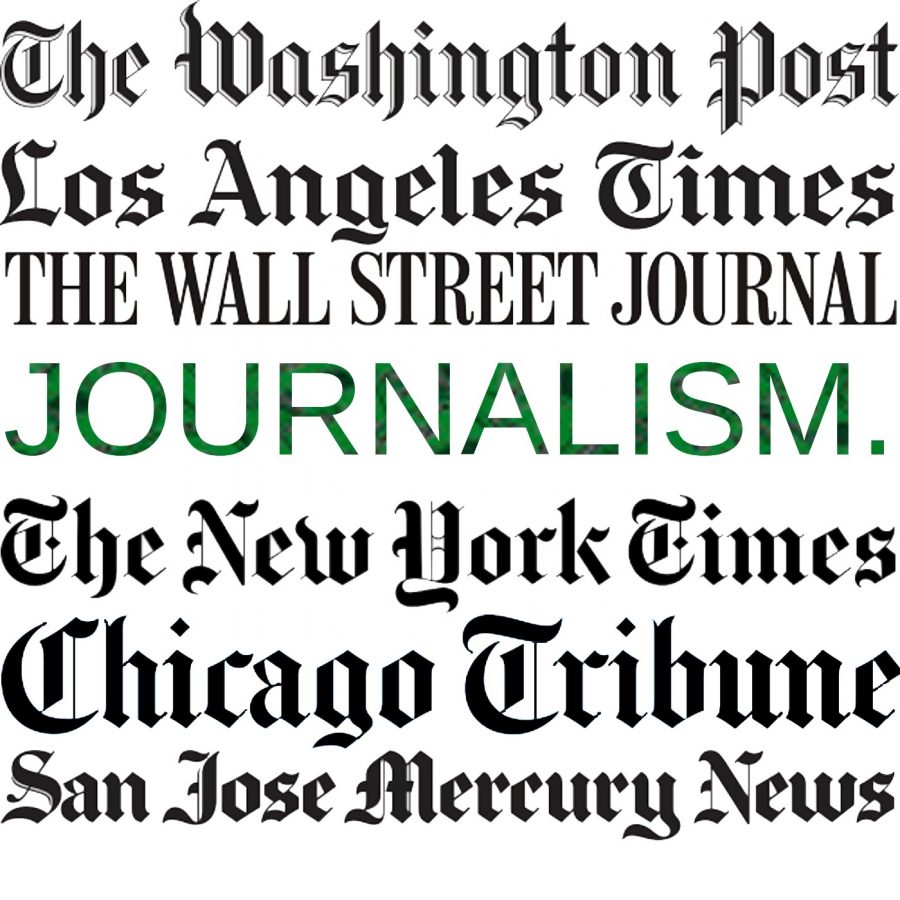The rising price of the truth
What our lacking support of journalism means for our world
April 11, 2019
As student journalists, we try to learn from the best, often looking to professional publications to help us kickstart an idea. They could inspire us with a creative lede, a seamless transition between sentences or a new style of graphic with greater visual appeal, helping to keep our stories afloat and interesting. We learn from their tactics to improve our own writing. Yet frequently, we can’t access them at all.
We are increasingly required to pay to get our local news, mostly through subscriptions. But since the rising accessibility of the internet, nearly all publications are gradually increasing their online content. However, there comes a price to online content. People begin to shy away from printed copy of stories and instead get their morning news digitally. That’s when student journalists — or anyone, for that matter — looking for the newest hot topic end up with something like this:

It’s infuriating. We hit a roadblock instantly because we aren’t willing to pay to view the news. And while it is true that not every online news outlet does this, it does call to attention both our unwillingness to give up a trivial amount of money and how it actually affects the entirety of journalism.
Unfortunately, (though we personally hate to admit it) journalism is a declining industry. Pew Research found that between 2008 and 2017, the overall employment in journalism dropped by 23%, or about 27,000 jobs. It’s even worse for the people working on their local paper, at a 45% loss, or 32,000 jobs. This declining interest in the physical paper shifts much more interest to digital news. However, most digital media started as a free outlet. People didn’t need to pay to view online stories. Yet, as more people slowly leave the paper and choose to view their stories online, journalism companies need to look for profits there instead. Most commonly, this is seen through increased advertising revenue, as it gains easy money for news sites. As a business, it’s respectable; profits are needed in order to stay afloat. As for the world, however, this limits the access to news that we deserve to have access to.
And while it is a very small amount of money, some choose to abandon the news and instead save a dollar or two in their pocket. We lose our access to the topics we need to know about, from sports to movies to politics. Furthermore, our unwillingness to pay will only cripple journalism further. More money will be asked for in the future from more news outlets. And eventually, we’ll need to spend money to read the news — just to keep the programs alive.
We certainly can’t abandon journalism entirely; the consequences of that are dire. If that were to happen, the only way journalism would be funded would be through sponsors. Through their ownership, they could reshape the way journalists operate: biasing stories, censoring content or choosing what kinds of stories are published based on their own preferences. Journalists will have no control – the business owners will. Those with money can make the decisions about how journalism will operate, even if it’s not the truth that the public needs to know.
This decline will result in the worst possible situation: the steady disappearance of the First Amendment. We journalists use it all the time as proof of our rights to cover events around the globe. It’s what keeps journalism so interesting and important. However, if journalism were to become primarily business operated and lack the support of the general public, the standard of a free press becomes nonexistent. At that point, we would have ruined the news. We might as well hear it via word of mouth.
We’re not advocating for the support of journalism as journalists; we’re advocating for the support of journalism as people. People deserve to know about the world they live in through a clear, unbiased structure. Because we aren’t helping the cause now, it could destroy the industry later so much that journalism will no longer be true journalism. It’ll be a money-making industry solely focused on earning profits for business owners, a biased state where no story can be fully trusted. Or it’ll turn into an industry where the only way to keep it alive is through paying enough money for it to survive.
For many of us, it’s not much to ask for a couple of dollars a month to keep a free press alive to report on essential topics. Despite some people’s recent shaming of journalism, we need it more than ever to stay alive and keep our realities grounded.
At this point, the truth isn’t worth much. But think about the consequences of abolishing it. The truth might become so expensive that it could just be easier to accept the bias that would emerge. A world of lies and deception presents itself when we fail to support journalism now.
If we don’t, we’ll pay for it later.

















